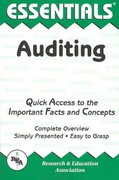Question
38. Altoona Corporation has two divisions, Hinges and Doors, which are both organized as profit centers; the Hinge Division produces and sells hinges to the
38. Altoona Corporation has two divisions, Hinges and Doors, which are both organized as profit centers; the Hinge Division produces and sells hinges to the Door Division and to outside customers. The Hinge Division has total costs of $40, $26 of which are variable. The Hinge Division is operating significantly below capacity and sells the hinges for $55.
The Door Division has received an offer from an outsider vendor to supply all the hinges it needs (20,000 hinges) at a cost of $50. The manager of the Door Division is considering the offer but wants to approach the Hinge Division first. What would be the profit impact to Altoona Corporation as a whole if the Door Division purchased the 20,000 hinges it needs from the outside vendor for $50?
No change in profit to Altoona.
$480,000 decrease in profits.
$100,000 increase in profits.
$100,000 decrease in profits.
39. Dockside Enterprises, Inc., operates two divisions: (1) a management division that owns and manages bulk carriers on the Great Lakes and (2) a repair division that operates a dry dock in Tampa, Florida. The repair division works on company ships, as well as other large-hull ships. The repair division has an estimated variable cost of $47 per labor-hour. The repair division has a backlog of work for outside ships. They charge $87 per hour for labor, which is standard for this type of work. The management division complained that it could hire its own repair workers for $57 per hour, including leasing an adequate work area.
If the repair division had idle capacity, what is the minimum transfer price that the repair division should obtain?
$47.
$57.
$40.
$87.
9. One division of the Marvin Educational Enterprises has depreciable assets costing $4,120,000. The cash flows from these assets for the past three years have been:
| Year | Cash flows | |||
| 1 | $ | 1,380,000 | ||
| 2 | $ | 1,448,000 | ||
| 3 | $ | 1,632,000 | ||
The current (i.e., replacement) costs of these assets were expected to increase 25% each year. Marvin used the straight-line depreciation method; the estimated useful life is 10-years with no salvage value. For return on investment (ROI) calculations, Marvin uses end-of-year balances. What is the residual income for each year, assuming the cost of capital is 15% and Marvin uses historical costs and gross book values to compute residual income?
| Year 1 | Year 2 | Year 3 | |||||||
| A. | $ | 350,000 | $ | 418,000 | $ | 602,000 | |||
| B. | $ | 206,000 | $ | 206,000 | $ | 206,000 | |||
| C. | $ | 345,000 | $ | 362,000 | $ | 408,000 | |||
| D. | $ | 345,000 | $ | 418,000 | $ | 244,800 | |||
Option A
Option B
Option C
Option D
Step by Step Solution
There are 3 Steps involved in it
Step: 1

Get Instant Access to Expert-Tailored Solutions
See step-by-step solutions with expert insights and AI powered tools for academic success
Step: 2

Step: 3

Ace Your Homework with AI
Get the answers you need in no time with our AI-driven, step-by-step assistance
Get Started


